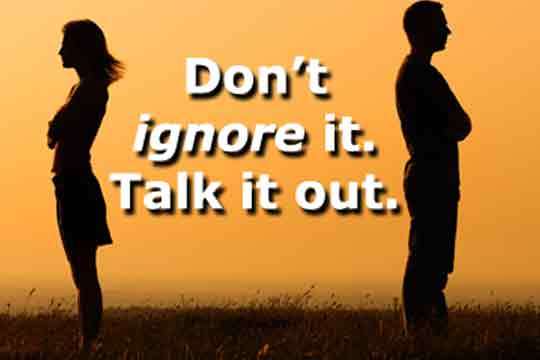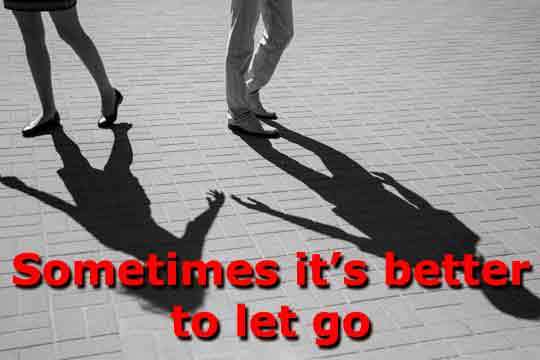Helene Lerner's Blog, page 52
February 26, 2016
6 Things To Remind Yourself When You Feel Like Giving Up

It seems like we’re always chasing after something. Our dream job, a healthier lifestyle, or breaking bad habits like spending less money. Somehow we may end up feeling like we're not measuring up to some imaginary goals that we have set for ourselves and may get discouraged – feel like giving up. We may convince ourselves that we're unqualified for a certain job, can't lose the weight we want to, so why even try? Here are some ways to keep going the next time you feel like you're giving up.
1. Ask yourself, how badly do you really want it?
Remember why you decided to start this goal in the first place. Was it a reasonable goal? Do you think you’re capable of completing it? What will it feel like once you accomplish it? Having the belief that you can do it is the first step. Now you just have to want it bad enough.
2. If it was easy, anybody could do it.
You probably identified your goal because you thought it would make you happier and it would grow your abilities if you achieved it. Recognize that the journey will not always be easy. Mentally prepare yourself for the days that are more difficult. It will help you power through, and not stop.
3. Motivate yourself.
Keep a sticky note on your computer reminding you why you started and how powerful you really are. Put a picture on your fridge of a time when you looked and felt your best. Or check out WomenWorking.com on your news feed! Keep the positivity rolling in every day.
4. Acknowledge when you need a break.
There will be those days when it's probably better to do something entirely different. There's nothing wrong with going to a museum and seeing something that stimulates your creativity or talking to a friend who you haven't spoken to in months because it just makes you feel good. We all need some time to regroup and recharge and as long as you get back on the horse the next day, give yourself a creativity break.
5.Reward yourself.
Don't forget to give yourself a pat on the back for little victories. When you make some headway, do something special for yourself. Instead of looking at what you haven't done yet, celebrate what you've accomplished.
6. Keep pushing forward
Sometimes your time table is different from how long it actually takes. Instead of throwing in the towel, be resilient. No one is superwoman, not even you! When you reach your goal, don't rest on your laurels. Identify a new goal and tell yourself, I can do it! Just look at your track record.
3 Ways To Handle Your Friends When They Piss You Off
 The people you love the most are often the people who get you the angriest. On the one hand you want to assert yourself. On the other hand you’d be devastated if the relationship wasn’t as strong to survive confrontation. So what’s the balance? When do you voice how you really feel? When do you not take it personally and keep your mouth shut? Here are 3 situations and how to deal with them.
The people you love the most are often the people who get you the angriest. On the one hand you want to assert yourself. On the other hand you’d be devastated if the relationship wasn’t as strong to survive confrontation. So what’s the balance? When do you voice how you really feel? When do you not take it personally and keep your mouth shut? Here are 3 situations and how to deal with them.
1. Your friend has a tendency to be at least 30 minutes late. Once or twice you understand. Her excuses are usually lame. Now it’s ten times in the last three months and you’ve reached your boiling point. You keep feeling pissed off because you know she’s going to do it again. Maybe this isn’t the end of the world, there’s no real crisis here but it’s inconsiderate. If she really knew how you felt, maybe she’d make a real effort to be on time. Have the conversation, don’t do it in an accusatory way. Talk in “I sentences.” In other words “I feel like you don’t care about me because over the last few months you’ve shown up late and it makes me feel like you don’t care about me or my time.”
2. Your friend thinks she may get fired. She seems overly sensitive and has actually gotten angry at you even though you haven’t done anything. And that pisses you off. You haven’t said anything because you’ve lost your job before and when you calm down you can relate to her feelings. You’ve decided to bite the bullet and support her.
3. Your best friend starts to date someone new and it’s getting serious. Until this point you’ve been spending a lot of time together. Now you’re lucky if you see her once a week. You’re getting pissed off. But on the other hand you’re happy for her because she deserves a loving relationship. Both of you have been quibbling and getting upset over little things. But it’s not the real issue. The fact is, you’re hurt. You miss her. You want to spend more time together. You’ve decided to call her up and set a time to talk about what’s really going on.
7 Habits for Success
 1. Compare and despair. A sure way of making yourself feel bad is to judge yourself by what someone else is doing. Instead of comparing, say to yourself, “what they’re doing is cool. If I apply myself, I can be doing the same thing in X amount of time.”
1. Compare and despair. A sure way of making yourself feel bad is to judge yourself by what someone else is doing. Instead of comparing, say to yourself, “what they’re doing is cool. If I apply myself, I can be doing the same thing in X amount of time.”
2. Be grateful for what you have. We hear this a lot, but we may not realize how true it is. If you want to have more, take note of what you have. When you do, you feel a sense of abundance, which creates a vibe you send out to the world that you’re ready for more.
3. Look for the positive. As the song goes, accentuate the positive; eliminate the negative – that says it all. You have a choice; you can see all the problems in a situation or you can choose to see what’s going right.
4. Help someone else get ahead. When you come from a position of serving others, you just feel better about yourself. You’re coming from your strength, not from what you “lack.” A successful person is looking not only to advance herself, but to bring someone else along.
5. Use your words to uplift. Words have great power. You can bring people down or raise them up. Great leaders have the ability to see and acknowledge the best in people. Follow their suit.
6. Don’t gossip. Sometimes gossip is a way to relieve tension, but there’s also a downside. You only have a certain amount of energy. If you’re going to use it to gossip, you may not have what it takes to move your goals ahead. It’s your choice.
7. Clear out clutter. It’s not only about your physical space. Clutter can consume your mental space too. If your physical space is organized, it’s conducive to achieving your goals. If you’re not over thinking and second-guessing yourself, you mentally have room for creativity.
3 Ways to Have a Tough Conversation When You Are Afraid To
 We all need to deal with things that come up that may be very uncomfortable. Especially when they deal with confrontation. It is sometimes easier to back down, rationalizing, saying, “it won't happen again,” “they won't listen anyway,” or “I will really piss them off.”
We all need to deal with things that come up that may be very uncomfortable. Especially when they deal with confrontation. It is sometimes easier to back down, rationalizing, saying, “it won't happen again,” “they won't listen anyway,” or “I will really piss them off.”
But if we don't deal, things have a strange way of repeating themselves. Even though you may be afraid to bring things up, you can, and here are 3 ways to help you do that:
1. Act as if you have a right to voice your opinion, even if you may not feel that way. Just get it out, don't stop or wait. It may come out in an awkward manner, but that's okay.
2. Practice in front of a mirror first. Mirror talk is a great way of getting your thoughts together. Also, you may want to role play with a trusted friend.
3. Think of the consequences of not saying anything. You'll probably feel bad or angry or frustrated, especially when what you're uncomfortable with happens, again, and again, and again.
3 Ways To Let Go Of Someone Who Is A Bad Influence
 We all have them, people who hang on to us or people we let into our life when we shouldn't. You might have outgrown this person but they still linger on. How do you finally cut them loose? Here are 3 ways.
We all have them, people who hang on to us or people we let into our life when we shouldn't. You might have outgrown this person but they still linger on. How do you finally cut them loose? Here are 3 ways.
1. Know that you matter most. We can try to do the right thing--help someone see the best part of themselves, but if they never do, why do we keep trying to change them? It really is a waste of our energy that could be put to better use.
2. See them for who they really are NOW. Most likely, their negative behavior "juices" them. They do not want to change it. There is some sort of weird payoff they get by being that way. Only, you're not their analyst. Know that the best thing for them and YOU is to separate.
3. Get on with your life. Are you avoiding something now that you should be doing for yourself? Often, we get wrapped up in "fixing" someone else, when we don't want to take responsibility for what we need and want. What is something you have been putting on the back-burner? Time to re-erect that.
5 Ways To Deal With Rude People
 Rude People! Yes, I've encountered a few of them. Have you? Whether it’s the way they ignored you or how they responded sharply and attacked your personality, handling rude people can be quite difficult. So, what is the best way to handle rude people?
Rude People! Yes, I've encountered a few of them. Have you? Whether it’s the way they ignored you or how they responded sharply and attacked your personality, handling rude people can be quite difficult. So, what is the best way to handle rude people?
Here are five practical tips from my experience:
Acknowledge the reality of the situation but don’t let it change who you are: If you set out every day with a list of people you want to change, you are on a futile mission. In reality, the only person you can change is yourself. As you change yourself, your view of others changes and hopefully others see you and emulate you in return. So, if you are in a conversation with someone who is rude, acknowledge the person is rude but don’t let it define you nor blind your view. Develop a tactic on how to engage without arousing the negativity. Be factual. Use open-ended questions to dig into the details and make an excuse for the person’s attitude upfront.
Empathize: Every attitude, whether negative or positive, has a story behind it. So before you judge, observe. Don't just listen to what's being said. Try and see through what is not being said. Why are they being rude? Is there something going on with the person that you are not aware of? Is it a one-time behavior or is there a trend? Are you the only one who experiences this behavior? Are they just having a bad day? Digging deeper beyond the outward display you see can help you manage the situation better.
Find A Common Ground: Connecting with someone who is rude can be demanding and require some effort not to take it personal. Try to find some common ground so you can still get something out of the conversation. If rude remarks are still thrown in your face, choose instead not to take it personal. There are some things not worth fretting over. Depending on the interaction, you can choose whether to let it go, when to be silent, and when to speak. Assess the situation and decide the appropriate response. It is easier said than done so taking a few seconds to decide what to do empowers you and sets you above the situation. Before the conversation, ask yourself “How can I get the best of out this conversation?”
Respond vs. React: Tone of voice and body language speak louder than words. When confronted with a negative tone and body language, do not reciprocate automatically. In the end, soft always wins over harsh! Control the tone of your voice. Speak slowly and in a softer tone to neutralize the atmosphere but don't compromise on the quality of the discussion while doing so. You can still be assertive, speak firmly, and get your thoughts across without flaring up. Controlling your emotions takes lots of practice so practice breathing techniques that can help you manage the situation. Then practice, practice, practice. You'll feel great afterwards.
Don’t be a passive accomplice: Sometimes when confronted with a negative or unacceptable behaviour, a spontaneous reaction could be to ignore it like it never existed. Not confronting such behaviour makes you a passive accomplice, someone who quietly accepts it or pretends it will go away. Don’t shy away from confronting unacceptable behaviour. The earlier you call attention to it, the better. It is in the best interest of not just you and the rude person. It can also prevent more people from getting hurt in the future. Sometimes, a rude person doesn't even know he or she is displaying such behaviour. Seek the right moment to give the feedback but do so in a constructive and timely manner. Cite a specific example to help the person relate to the situation.
Learning to connect with rude people can be tough but it is a skill we can improve on to enhance positive and productive conversations.

Mofoluwaso Ilevbare (Fofo) is a certified John Maxwell Coach & International Speaker. For more from Fofo, you can follow her blog: mofoluwasoilevbare.com
3 Ways to Recover From A Serious Mistake
 You seriously blew it.
You seriously blew it.
As a result, you missed a crucial deadline, your company lost an important client or you made your boss look bad to senior management. You wish you could turn the clock back and fix your mistake, but you can’t.
What now?
Own it
Take immediate responsibility. When you try to minimize a mess through rationalizations or sleight-of-hand maneuvers, you waste time and energy. Covering up a mistake burdens you with worry that you’ll be found out.
If a major fumble has weakened your employer’s or peers’ confidence in your decision-making or competence, own up to your error and outline how you plan to fix the situation. We admire those who admit, “This was my fault.” Further, once you acknowledge the situation, you and others can work to fix it.
Learn
Squeeze value from your mistakes. If you learn from your mistakes, you’re no longer the person who made them – you’ve moved beyond. Further, once you analyze what happened and why, you head off repeat mistakes. If you refuse to learn, your small errors will grow into fatal flaws.
Although you can’t fix the past, you can reassure your supervisor and peers you’ve absorbed your lesson and can be trusted with future decisions. Your employer paid a price for what you learned and needs to hear there’s a future pay back. Explain how you plan to handle things differently, before others make lasting judgments about your ability to handle future situations.
Put it in the rearview mirror and don’t let it stop you
Don’t turn a mistake take into an on-going tragedy. Beating yourself up adds little value. Dwelling on the past extends its life. Decide on your next steps and take them.
Those who hesitate to take future risks because a mistake burned them sentence themselves to stagnation. Successful people achieve because they reach high and stretch their limits, risking potential mis-steps. Was your mistake large? It becomes an opportunity if it inspires a complete directional shift resulting in a major leap forward.

© 2016, Lynne Curry, professional coach and author of Solutions and Beating the Workplace Bully. Follow her on Twitter @lynnecurry10 or on workplaceocoachblog.com.
 3 Strategies for Turning the Tables on a Workplace Bully
3 Strategies for Turning the Tables on a Workplace Bully
February 25, 2016
The 3 Best Strategies for Eliminating Emotionally Fueled Eating
 Do you eat when you’re upset, depressed, or to calm yourself down? When you’re celebrating or need a lift? When you’re angry, bored, anxious, sad, or lonely? If so, you turn to eating when trapped by a difficult situation or feeling. You use eating.
Do you eat when you’re upset, depressed, or to calm yourself down? When you’re celebrating or need a lift? When you’re angry, bored, anxious, sad, or lonely? If so, you turn to eating when trapped by a difficult situation or feeling. You use eating.
Emotional landmine eating
If you use eating as a way of comforting, calming or coping, you probably learned this pattern at an early age. When you were little and had an “owie,” your parents may have given you a hug, a kiss, and a cookie. Once you focused on the treat, you felt better. So what do you do when you’re older, especially if the hug and kiss aren’t available? – You look for a cookie. When you feel powerless in a situation or a relationship, food becomes something you can control and give to yourself. When you feel hurt, lonely or bored, food becomes something you can take to bed.
When you use food to comfort or nurture yourself or as a buffer from pain, then any emotion can trigger eating. Food is a terrific and a terrible comforter and calmer – it anesthetizes pain, distracts you from hurt, and shoots calming endorphins into the bloodstream. Unfortunately, when you use food in excess you wear your comfort on your body.
If you now wear more stored food on your body than you want, you need a strategy for breaking the link between emotions and eating. Here’s what I teach in the training session I developed called The Milky Way Diet: emotional and attitudinal strategies for weight loss.
The pause and reflection strategy
When you find yourself tempted to eat, pause. Then, ask yourself:
Am I hungry for food or is there an emotion or situation troubling me?
If you answer “an emotion or situation”, ask yourself:
“What emotion do I feel? What’s the feeling this situation gives me?”
If you find it hard to name the emotion, give yourself time. Let yourself consider two or three feelings – you may find the real feeling hidden under several others. When you name the emotion and begin to feel it purely and cleanly and without food, you’ve begun to conquer the emotion/food trigger. However long it takes, and especially if you find it painful to name the emotion, congratulate yourself on your honesty.
The diversion strategy
Once you name an emotion, you can start to tackle it. Ask yourself:
In what non-calorie way can I comfort or calm myself?
How can I cope with this emotion in a way that doesn’t add weight or later regrets?
What other methods can I use to express or discharge this emotion?
The take another action strategy
Once you commit to managing your emotion without covering it with food, you free yourself to try activities that give you pleasure, insight, and peace. Consider these four examples:
Can you call a close friend and talk? That would get the issues out on the table and possibly give you either comfort or perspective without calories.
Can you write about the situation or your feelings in a journal? When you write, you get the emotions out from inside and into the light of day where you can gain clarity or perspective about the situation.
Can you allow yourself to really feel the emotion and let it “work it out?” When you allow yourself to feel an emotion, instead of anesthetizing yourself with food or drink, you often “get past” the emotion.
Can you nurture yourself with a hot bubble bath, a good book, a warm fire, or a long walk? If you choose a method that gives you pleasure, without calories, you win an altered mood and a sense of pride in having conquered your food impulse.
Have emotions driven you to eat? Avoid the landmine by using the emotion to propel you to action, rather than food.
And finally, over-eating, binging, and anorexia can be difficult to fully conquer and can be addictions. You may need a team of medical professionals, counselors, and supportive individuals in a recovery group to take you further on the path to the healthy body you want.

© 2016, Lynne Curry, professional coach and author of Solutions and Beating the Workplace Bully. Follow her @lynnecurry10 or onworkplaceocoachblog.com.
The Easiest Way to Double Your Happiness
 Sometimes my head spins when I read about how to be happier. We’re told we need to change our unhealthy eating, get more sleep, balance our lives, and make sure we’re exercising enough. Don’t get me wrong—I agree with all that. But for now, let’s start with something more manageable. To do that, I’m going to give you one tip (not three, just one that works right away) to double your happiness.
Sometimes my head spins when I read about how to be happier. We’re told we need to change our unhealthy eating, get more sleep, balance our lives, and make sure we’re exercising enough. Don’t get me wrong—I agree with all that. But for now, let’s start with something more manageable. To do that, I’m going to give you one tip (not three, just one that works right away) to double your happiness.
Pay attention to when you’re happy
We know that life has its ups and downs. Being happy doesn’t mean there aren’t times you feel sad, angry, overwhelmed, or stressed-out. If you receive disappointing news, it’s normal to be disappointed. It’s okay to feel angry if someone mistreats you—that anger can be a catalyst to you doing something about it. So the goal in our desire to be happy isn’t to feel “happy” all the time.
With that said, I bet you’re happier more often than you think. I say that because plenty of things go on in your day that can give you positive energy (happiness) if you stop and think about those times. The challenge is we tend to pay attention to when things go wrong, but we don’t notice all the times things go right. We notice when we’re in pain, but do we notice when we feel good?
If you want to double your happiness—and then continue in that direction—you just have to do one thing. Notice the times you feel any level of positive energy—about anything. Do you like the people you work with, or at least some of them? Did your car get you to work today? If you are proactive and look for things to feel good about you will find them all around you.
You do hundreds of things throughout the day without giving them much thought. Begin to be more conscious of what you do that gives you even a little charge of positive energy. That cup of coffee? Didn’t you like it? That was a time of happiness. What do you do at work that brings you satisfaction on some level, something you can take pride in?
Those are times of happiness. Do you have someone that cares about you? Doesn’t thinking about them make you feel good? It’s not that we don’t have a lot to feel good about, we do. We just have to be aware of these things—we have to notice them on purpose. Doing that one thing will double your happiness.
Happiness Action Plan: At the end of each day, simply recall three things (or start with one thing) that makes you feel good in some way. Soon you’ll realize you’ve felt more times of happiness than you’ve realized.

- Alan Allard, Creator of Enlightened Happiness
February 24, 2016
3 Ways to Feel Better When a Coworker Gets on Your Nerves
 When someone gets on your nerves, it’s a real thing. “Your nerves” send electricity to your cortisol, and that creates the feeling that your survival is threatened. To make matters worse, this activation connects your neurons so they release the stress chemicals even faster the next time. You can end up with a lot of co-worker stress, even though you don’t think this consciously. But you can recover quickly if you know these three facts about your brain chemistry:
When someone gets on your nerves, it’s a real thing. “Your nerves” send electricity to your cortisol, and that creates the feeling that your survival is threatened. To make matters worse, this activation connects your neurons so they release the stress chemicals even faster the next time. You can end up with a lot of co-worker stress, even though you don’t think this consciously. But you can recover quickly if you know these three facts about your brain chemistry:
1. Cortisol is excreted in about 2 hours.
Your body metabolizes and eliminates stress chemicals, so you can be stress-free two hours from now - unless you trigger more. But we DO trigger more, because our brain is designed to look for threats when the cortisol is on. You’re skilled at finding a threat when you look, so it’s easy to end up in a stress loop. To stop it, distract yourself with something pleasant for a couple of hours. That’s hard to do, of course, because everything bugs you when cortisol is flowing. But if you plan ahead, you can have non-triggering activities to turn to while your cortisol is being eliminated. Think of tasks you can do when your patience is thin, and set them aside. When I’m triggered, I plan trips, do graphics, chop vegetables, and read mail from my readers. But sometimes I need to just stretch while watching an episode of Maron. (He’s tackling his anger management problems with hilarious honesty.)
2. Dopamine makes you feel good when you accomplish something, no matter how small.
If a co-worker obstructs your path to accomplishment, your dopamine droops. Like a hungry lion who fails in pursuit of a gazelle, your dopamine droop creates a sense of urgent threat. Fortunately, the lion’s dopamine soars as soon as it targets another gazelle. So don’t let a co-worker steal your dopamine - just shift your sights to a new goal. Dopamine is the brain’s signal that your needs are about to be met. It makes life feel exciting. But the good feeling never lasts because our brain is designed to reward new steps. So stop worrying about your co-workers and start stepping! Fortunately, even small steps toward small rewards will trigger it.
3. Serotonin makes you feel good when you get respect, so focus on the respect you have instead of the respect you don’t have.
No one likes to admit they care about approval, but our brain is inherited from social animals. It rewards you with the good feeling of serotonin when you get respect because higher-status mammals made more copies of their genes. Your brain keeps scanning for ways to get respect because serotonin makes it feel good. When you don’t get the respect you had hoped for, it feels like a survival threat to your mammal brain. To make matters worse, you often see a co-worker getting the respect you thought was coming your way. It’s not easy being a mammal! You are not consciously trying to spread your genes of course, but this brain we’ve inherited seeks social rewards as soon as its physical needs are met. Animals can’t save for a rainy day, so status-seeking is their way to invest today’s extra energy in tomorrow’s needs. It may be hard to accept the mammalian facts of life, but it helps you relax despite the ups and downs of working with a group of big-brained social animals. Your inner mammal will feel threatened by competitive co-workers, but you can train it to focus on the respect you already have.

- Dr. Loretta Breuning is the founder of InnerMammalInstitute.org and author of Habits of a Happy Brain: Retrain Your Brain to Boost Your Serotonin, Dopamine, Oxytocin, & Endorphin Levels
Helene Lerner's Blog
- Helene Lerner's profile
- 9 followers



